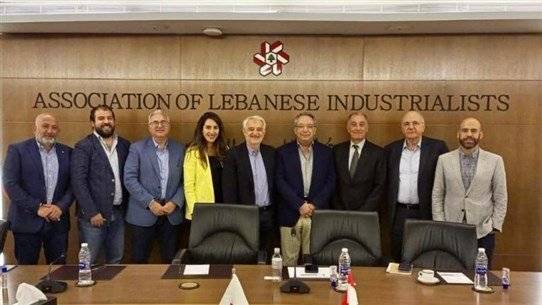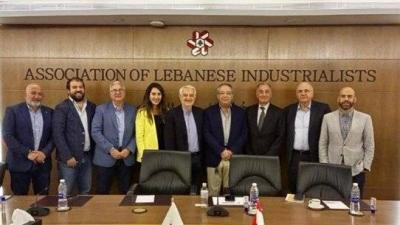The President of the American Task Force for Lebanon, Ambassador Edward Gabriel, and group member Chayan Ma'wad visited the Lebanese Association of Industrialists, where they were received by the association's President Selim Al-Zahni, Vice Presidents Ziad Bekdash and George Nasrawi, and members Munir Al-Bassat, George Saboujian, Paul Abi Nasr, and General Director Talal Hajazi. During the meeting, the political, security, economic, and social conditions in Lebanon were discussed.
Al-Zahni welcomed the delegation, appreciating the efforts made by the American Task Force for Lebanon to assist Lebanon and the Lebanese people. He pointed out the difficulties facing Lebanon, which are worsening, stressing the need for Lebanon's friends to stand by it to help return to the path of recovery and revival.
Gabriel confirmed that the agreement with the International Monetary Fund and the demarcation of borders should be among the Lebanese state's top priorities.
During the meeting, the industrial sector presented to Gabriel the main outlines of the economic and financial recovery plan prepared by the economic bodies and the Association of Industrialists. Gabriel welcomed these proposals and their importance for saving the national economy.
The industrial sector also highlighted the significant competitive capabilities of Lebanese industry, underscoring the low production costs and high standards adopted. During the discussion, Al-Zahni and the participants from the Association of Industrialists stressed the need to address three key issues: the first being the expansion of the informal economy at the expense of the formal economy, which has lost its capabilities and resilience; the second being the necessity of restoring relations with Arab countries, especially the Gulf States, to their natural state; and the third being the Syrian displacement, which has become a heavy burden on the Lebanese economy. Unfortunately, its resolution does not fall to the Lebanese but rather to the international community and decision-making countries.
At the end of the meeting, the participants emphasized the need to prioritize the files presented during the meeting, as they constitute a fundamental pillar for Lebanon to exit its crises.




